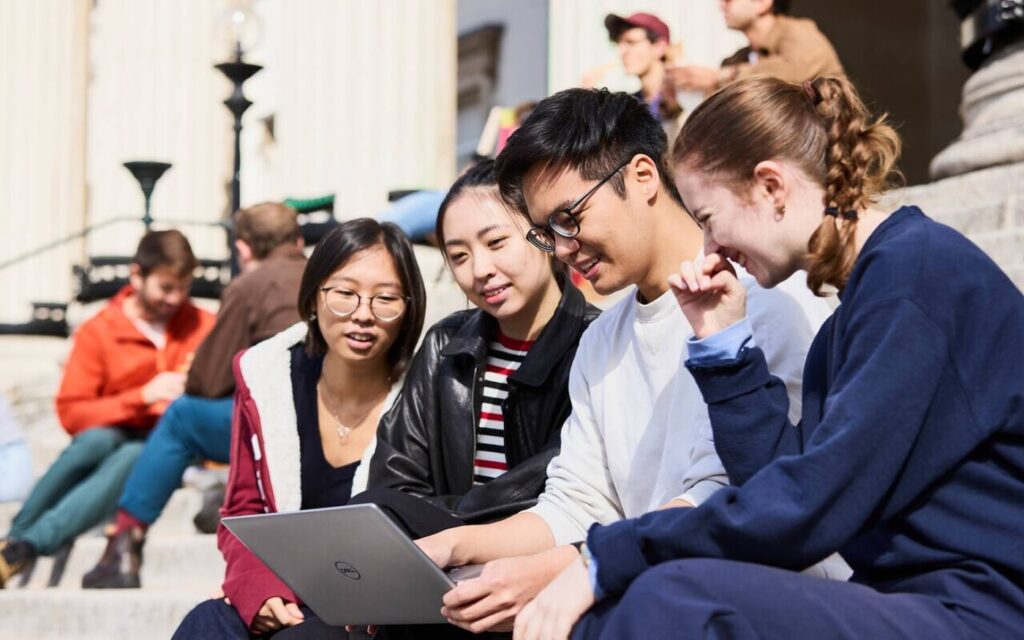A new report has revealed that Chinese students in UK universities are allegedly being urged by government officials to spy on their classmates and suppress classroom discussions on topics deemed sensitive by the Chinese authorities.

The report, released by the UK-China Transparency (UKCT) think tank, surveyed academics in the field of China studies and highlighted growing concerns about foreign interference, self-censorship, and intimidation within UK academic institutions.
“Some Chinese students have told their lecturers they were asked to report on their peers by Chinese officials,” the report said.
Sensitive Topics Off-Limits
The report also claims that some Chinese government officials have warned lecturers directly to avoid discussing politically sensitive subjects. These include areas such as the Xinjiang region and alleged ethnic cleansing, the Covid-19 pandemic, and the influence of Chinese tech companies.
Several academics involved in these areas of research have reportedly been denied visas to China or said their families back home had been harassed or threatened.
“Other students, of various nationalities, reported feeling uncomfortable in class when these topics came up, fearing surveillance or repercussions,” the UKCT report noted.
Confucius Institutes Under Scrutiny
The report also raised concerns about Confucius Institutes, Chinese government-funded cultural and language centres operating on several UK university campuses. Though intended to promote Chinese culture, they have been accused of being tied to the Chinese Communist Party and of possibly stifling free academic discourse.
The Office for Students (OfS) said it expects these institutes to come under review as part of the UK’s newly implemented free speech laws.
Free Speech Law Now in Force
The UK government’s new legislation came into effect last week, placing increased responsibility on universities to protect academic freedom and free speech, especially when international partnerships are involved.
Under the new law, institutions that fail to uphold these freedoms could face fines worth millions, and the OfS has introduced a new complaints process that allows staff and visiting speakers to report threats to freedom of expression directly.
Universities are also expected to review or cancel agreements, including foreign scholarships or joint programmes, if they pose a risk to open academic discourse.
OfS Chief Executive Susan Lapworth has said that “universities must exercise an appropriate level of curiosity” about any foreign-funded arrangements, especially those that might compromise academic integrity.
Government Reacts to Report Findings
Skills Minister Jacqui Smith responded firmly to the UKCT findings, stating:
“Any attempt by a foreign state to intimidate, harass or harm individuals in the UK will not be tolerated.”
“We are also working directly with the Office for Students to support universities in safeguarding free speech and tackling any form of harassment on campus.”
She added that the new law makes it “explicitly clear” that academic freedom is “non-negotiable in our world-leading institutions”.
The OfS earlier this year issued a record £585,000 fine to a UK university for failing to uphold free speech protections—what the minister called a “clear warning” to institutions across the country.
Chinese Embassy Responds
In response to the UKCT report, the Chinese embassy in London dismissed the allegations as “groundless and absurd”, maintaining that China “respects freedom of speech in the UK and elsewhere”.
However, the report underscores the ongoing tension between academic openness and international diplomacy, particularly as universities navigate both financial dependencies and the rising influence of global politics on their campuses.
With thousands of Chinese students enrolled in British universities each year, the findings raise fresh concerns over how foreign state pressure may be shaping classroom dynamics. As the UK pushes to defend academic freedoms, this development could lead to increased monitoring of international partnerships and a broader reevaluation of how institutions handle politically sensitive subjects in a globalized academic environment.



